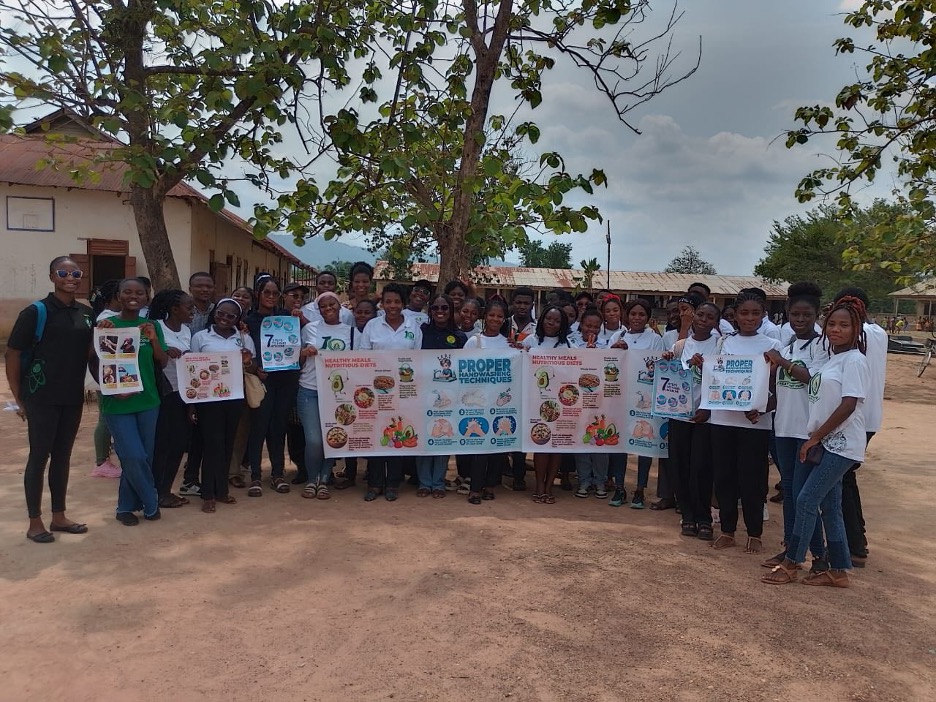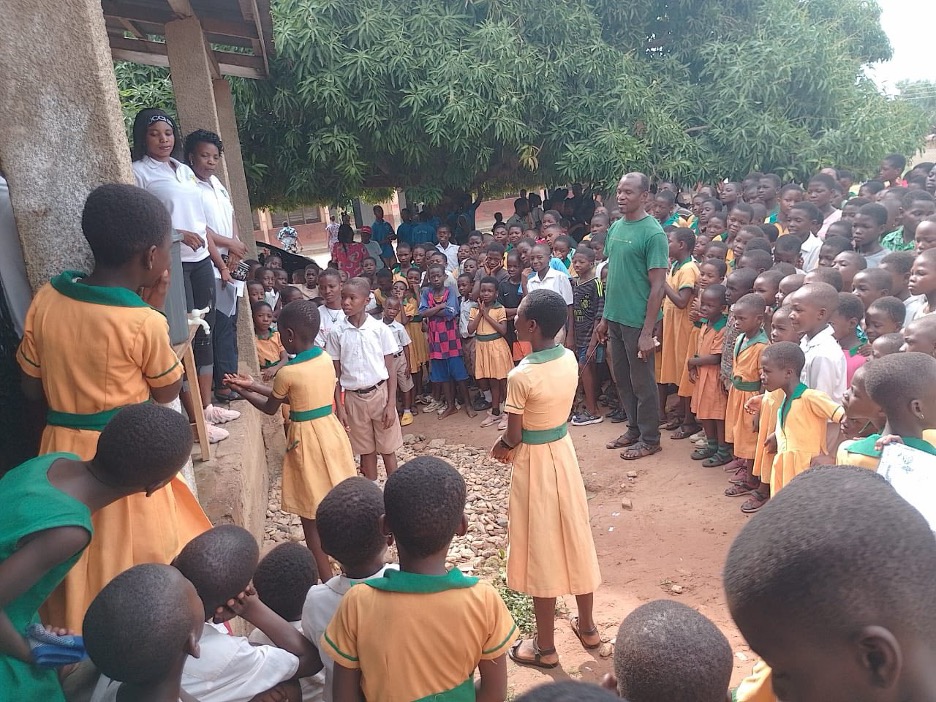
What we consume has a more profound impact on our health than what we say.” This guiding message echoed through classrooms in Hohoe on March 13, 2025, as Level 400 Health Promotion students from the Fred N. Binka School of Public Health (FNBSPH) in the University of Health and Allied Sciences (UHAS) brought health education to life for pupils at Kpoeta Basic School and Roman Catholic Basic School, Atabu in the Hohoe Municipality of the Volta Region.
A lecturer at FNBSPH and a Public Health advocate, Dr. Veronica O. Charles-Unadike, led the outreach which formed part of a hands-on community service initiative aimed at promoting proper hand hygiene and nutrition awareness among school children. The activity was both lively and enlightening, engaging students in practical demonstrations, educational sessions and interactive discussions.
In her interaction with pupils and teachers during the programme, Dr. Charles-Unadike said, ‘Schools are one of the best places to lay the foundation for lifelong health habits. By teaching children, the importance of handwashing and balanced diets, we’re not just preventing illness, we’re building healthier communities.’
The event addressed three key areas: proper handwashing techniques, nutrition education and cholera prevention, particularly the risks of eating unwashed fruits like mangoes. Using posters, flyers and hands-on demonstrations with Veronica buckets, pupils learned how an activity as simple as soap and water can prevent serious illnesses.
Many pupils were surprised to learn that handwashing should last for at least 20 seconds. Others discovered the value of adding vegetables and protein-rich foods to their daily meals. ‘I didn’t know we had to wash mangoes with salt water before eating them, I’ll tell my family about it too.’ one pupil shared.

The outreach also highlighted existing challenges in the schools which included, lack of adequate handwashing facilities, short school breaks and limited understanding of balanced diets. As part of efforts to address the challenges observed, the UHAS team donated Veronica buckets and liquid soap to each of the schools they visited to support daily hand hygiene.
The atmosphere throughout the outreach programme was energetic and hopeful. Pupils eagerly participated in Q&A sessions, with facilitators using the opportunity to correct misconceptions and reinforce key health messages.
One of the student organisers said, ‘Our goal was not just to teach, but to inspire lasting behaviour change. We were moved by how enthusiastic the children were, it showed us the power of community health education.’
As a call to action, the team encouraged the schools and the wider community to sustain these efforts through regular health talks, improved sanitation infrastructure and parental involvement.
The University is proud of FNBSPH, particularly the participating students, for applying their academic knowledge in real-world settings and making a tangible impact. Their work reflects the mission of UHAS to improve health outcomes across Ghana through education, outreach and innovation.